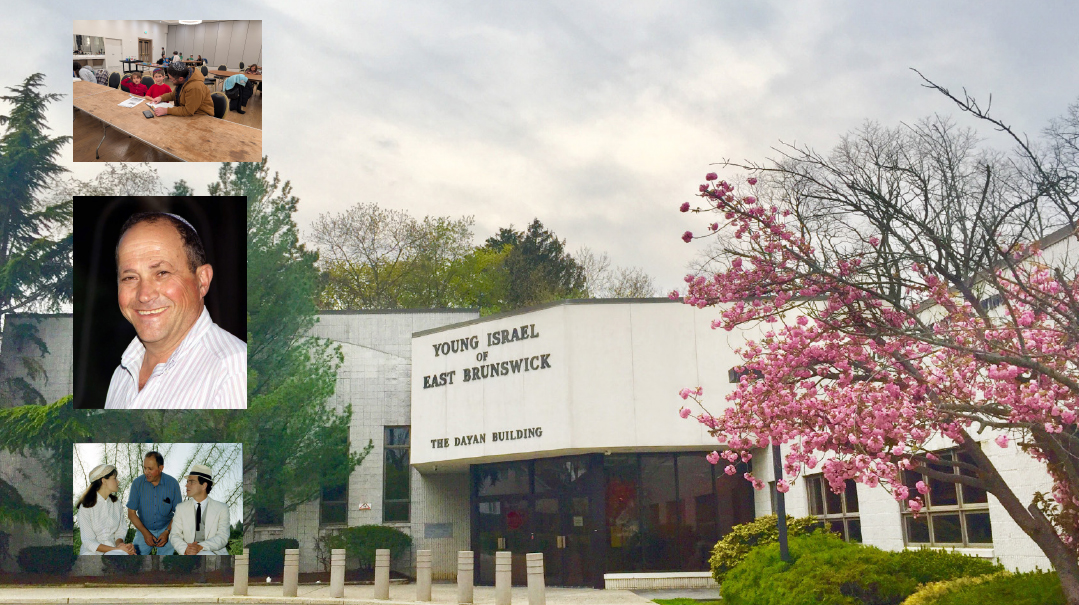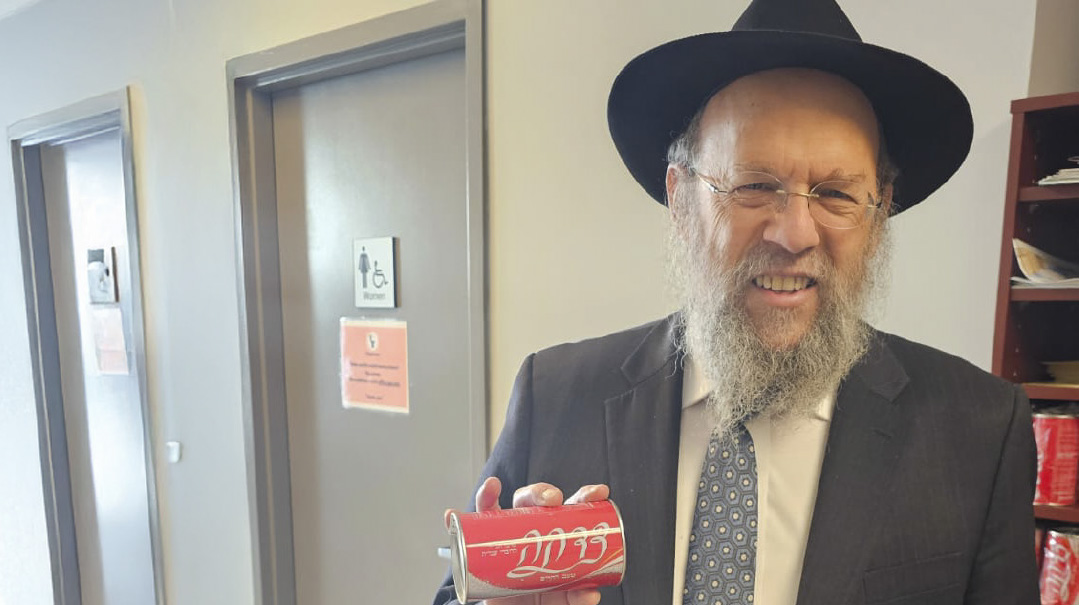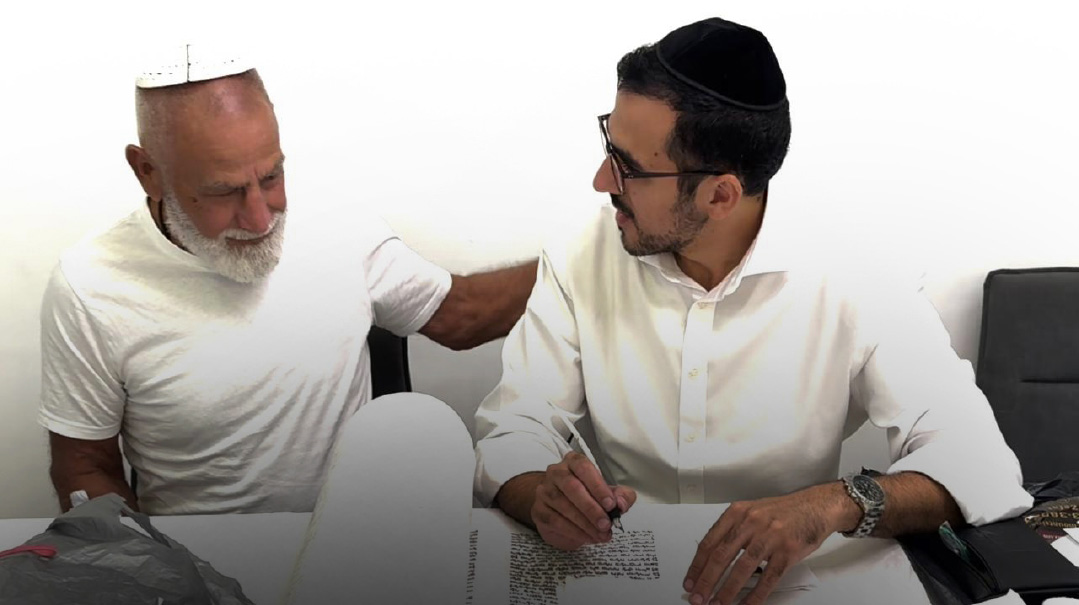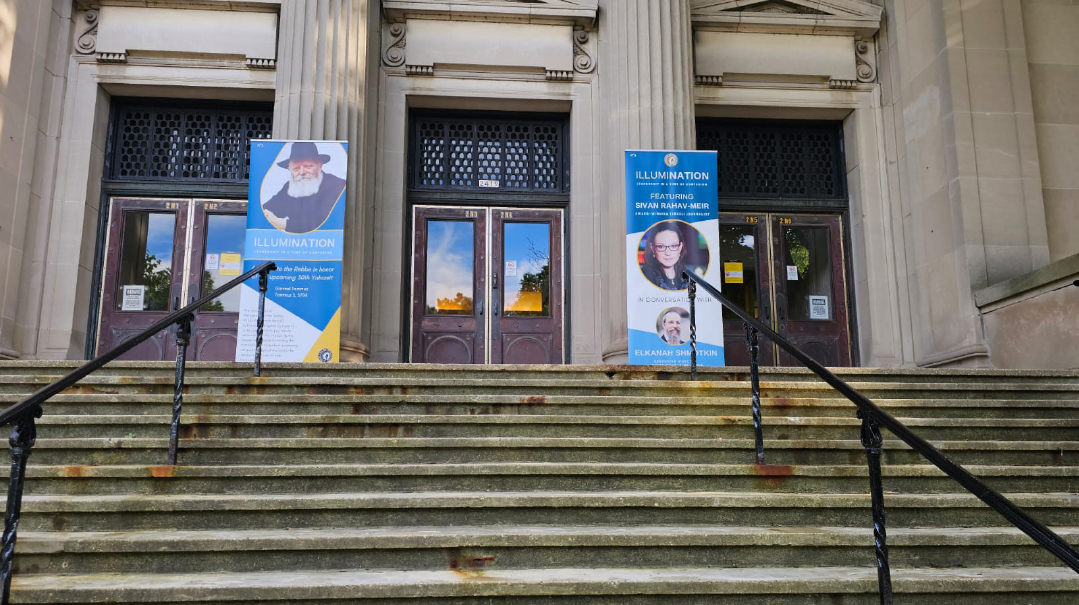Full Circle
| October 8, 2024The 53,000-square-foot Friendship Circle of New Jersey (FCNJ) is unlike anything I’ve seen before
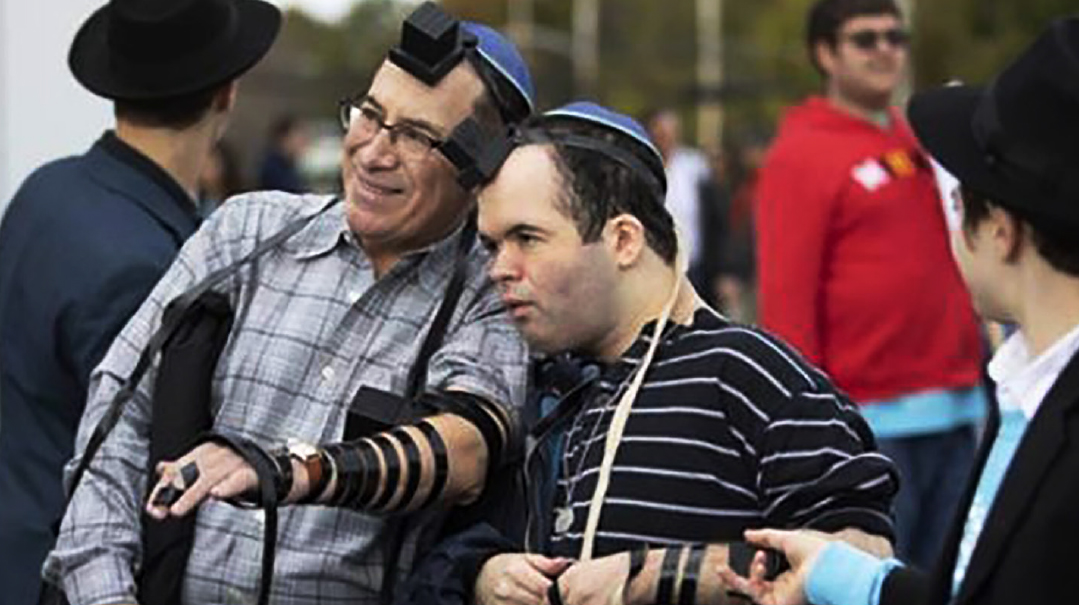
Where: Livingston, NJ
Who: FCNJ (Friendship Circle New Jersey)
My Takeaway: We all have something to learn from a place where individuals with special needs are embraced with acceptance and respect
I’ve been to many Chabad Houses and educational centers, but the 53,000-square-foot Friendship Circle of New Jersey (FCNJ) is unlike anything I’ve seen before — it’s practically a city unto itself! Although I was invited for an engaging Shabbos, I was also eager to see the weekday activities of this special enclave.
My guides, Rabbi Zalman and Rebbetzin Tova Grossbaum, founded FCNJ in 1996 when they arrived in Livingston, New Jersey, as standard shluchim, like thousands of other Chabad couples worldwide. Initially their work seemed typical — disseminating Torah and Yiddishkeit through educational programs, youth activities, and community events, as well as seasonal highlights, such as matzah baking, blowing shofar, and Shabbos and Yom Tov seudos. Soon, however, they identified an additional pressing need: New Jersey has the largest percentage of individuals on the autism spectrum, and one of the highest percentages of people with special needs.
What the Grossbaums lacked in experience with special education, they more than made up for with their deep sense of mission and passion to change the landscape.
After some initial investigation, they contacted the founders of the Friendship Circle in Michigan, Rabbi Levi and Rebbetzin Bassie Shem Tov. Inspired by their work, the Grossbaums soon opened the second branch of Friendship Circle in New Jersey. Today there are dozens of FC branches the world over.
“We started small, but the need quickly became overwhelming,” Tova shares. It soon became clear that renting a temporary space wasn’t enough; they had to dream big. After a successful fundraising campaign, Life Town, the current massive FCNJ complex, became a reality.
Construction of Life Town was completed in 2018, but with all the new additions and innovations, it takes a few hours to see it all and fully appreciate the multi-sensory experience. As you enter, you encounter the Musical Stairs of Joy, where each step produces musical sounds. The hallway features interactive screens, including Alphabet Wall, a vibrant display that teaches letters in English, Hebrew, and Mandarin, as well as braille and American Sign Language (ASL). The kitchen functions as a veritable restaurant where the students not only prepare the food — including challos for Shabbos — but also learn essential social and motor skills.
The centerpiece of Life Town is the Village. This simulated town square has 11,000 square meters of streets, traffic lights, a park, sidewalks, and 15 stores that are fully functional. Here, individuals with special needs learn how to shop, withdraw money from an ATM, budget their finances, visit the doctor, and more. The various shops, offices, and the 50-seat theater teach vital life skills in the most realistic and safe setting imaginable. Everyone is eager to assist and problem-solve, almost making you wish the real world could be so forthcoming and accommodating.
FCNJ has become the hub of a community of Jewish families who originally came to solve an issue, but ended up staying because they identify with the FCNJ’s mission and its positive atmosphere. At FCNJ, everyone plays a role — there are no passive participants.
Here you can really see the Chabad concept of “shaliach oseh shaliach”— everyone can light the spark of shlichus in his friend. In this spirt, the Friendship Circle team is based not only on salaried workers but on a huge volunteer corps of enthusiastic teens and adults. Everyone who comes here becomes an activist, attracting more and more volunteers.
“Youth volunteers go to the homes of children with special needs to play with them, giving their parents a much-needed break,” Rabbi Zalman explains. “Just by coming to the homes, they are making an impactful statement. These volunteers are often the only friends the children have outside of their families. For the volunteers too, it’s life-changing. It pulls them out of their screens and into authentic, human connection.”
FCNJ is regarded by the wider, general community as a source of inspiration and authority, with universities sending researchers to FCNJ to see the place where, in Tova’s words, “Kids don’t come to be treated but to live together.”
We did a quick tour of the basketball court, the bowling alley, and the football field. Wherever you look there are children in wheelchairs or with walkers alongside other children who can walk unassisted, and they are playing together.
Everything is accessible, with special sensitivities in mind: The pool temperature is set exactly to minimize the discomfort of going in and out of the water; the gym has a sound-absorbent ceiling and walls so that children with sensory overload can participate in sports. Throughout the building there is calming, interactive music, and huge windows that let in the natural healing sunlight.
“Each neshamah has a unique mission on earth, and each person has unlimited potential. People with special capabilities must be part of the community, and receive positive educational opportunities as contributing members of society,” the Lubavitcher Rebbe ztz”l wrote in a well-publicized letter.
Back when the word “retarded” was an accepted term for the mentally challenged, the Rebbe would never use it, preferring the word “special,” not only as a more refined way of speaking, but because it truly reflects the unique abilities of the individual.
The Rebbe stated that as important as are the therapies, just as important are the opportunities given to people with special needs to connect with their Jewish identity. “This,” he wrote, “is their right and their obligation.”
In fact, Jewish identity and Yiddishkeit are woven into the very fabric of the FCNJ. The food is kosher, the center is operated according to halachah, there are Torah classes, and you can feel the Jewish holidays in the air. There is also a shul with a 3D depiction of the Kosel on one of the walls where many children with special needs celebrate their bar or bat mitzvah. Many volunteers, too, mark their 12th or 13th birthdays here with acts of chesed while forging ties with the Jewish community.
ON Friday afternoon we lit candles, and after davening we sat down for the Shabbos seudah. I hadn’t been expecting the crowd of hundreds, who clearly see the FCNJ as their shul and community. At my table I met a woman who first came here because of her child’s disability, and subsequently discovered her own connection to Judaism. “That the Torah was so full of kindness and giving — who knew? I’m ashamed to tell you what I once thought about people who look like Rabbi Zalman,” she said.
Another couple told me that volunteering at the FCNJ is “contagious,” adding that they have been contributing for decades — not only money but time. They share Shabbos seudos with the Grossbaums and gradually have been taking on more mitzvos, like putting up a mezuzah and observing Shabbos and Yamim Tovim. “Rabbi Zalman never said anything to us directly,” they said, “but over the years, he’s had a positive influence on us.”
I told them that it was worth coming all the way from Israel just to see this incredible complex that is so embracing, loving, and transformative — not only for individuals with special needs but for everyone who steps through its doors. If the Jewish People as a whole could become a Friendship Circle, we’d be stronger and more united than ever.
(Originally featured in Mishpacha, Issue 1032)
Oops! We could not locate your form.

